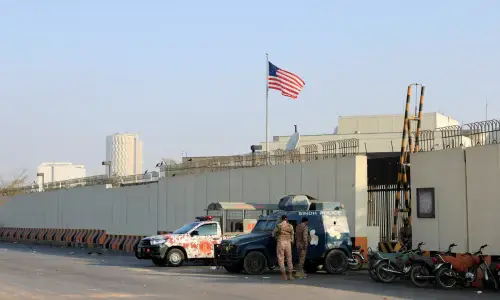
The Afghan defence minister and his army chief resigned Monday, days after what is believed to be one of the deadliest-ever Taliban attacks on a military base triggered calls for officials to step down.
“President Ashraf Ghani has accepted the resignation of the defence minister and army chief of staff,” a one-line statement from the presidential palace said.
Read more: Over 100 killed, wounded in Taliban attack on Afghan military base
Angry Afghans had called for the resignations of minister Abdullah Habibi and army chief Qadam Shah Shaheem, among other officials, after the assault outside the northern city of Mazar-i-Sharif on Friday. Ten gunmen dressed in soldiers' uniforms and armed with suicide vests entered the base in army trucks and opened fire at unarmed troops at close range in the mosque and dining hall.
The exact toll from the assault remains unclear. Afghan officials have so far ignored calls to break down the toll it has given of more than 100 soldiers killed or wounded, but have been known to minimise casualties in such attacks in the past.
The US has said that at least 50 soldiers were killed, and some local officials have put the number of dead alone as high as 130.
The raid underscores the Taliban's growing strength more than 15 years since they were ousted from power, and as they gear up ahead of the spring fighting season.
Many Afghans slammed the government for its inability to counter the attack, the latest in a series of brazen Taliban assaults, including one on the country's largest military hospital in Kabul in March that left dozens dead.
Twelve army officers, including two generals, were sacked for negligence over that attack.
Officials put the death toll in that attack at 50, but security sources and survivors told AFP more than 100 were killed in the brazen assault.
Military analysts have slammed the “total intelligence failure” over such assaults, and called for new strategies to counter them.
Afghan security forces, beset by killings and desertions, have been struggling to beat back insurgents since US-led NATO troops ended their combat mission in December 2014.
According to US watchdog SIGAR, casualties among Afghan security forces soared by 35 percent in 2016, with 6,800 soldiers and police killed.
More than a third of Afghanistan is outside government control and many regions are fiercely contested by various insurgent groups, as Kabul's repeated bids to launch peace negotiations with the Taliban have failed.































